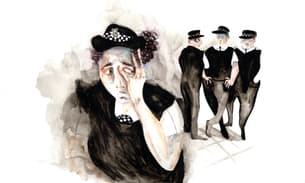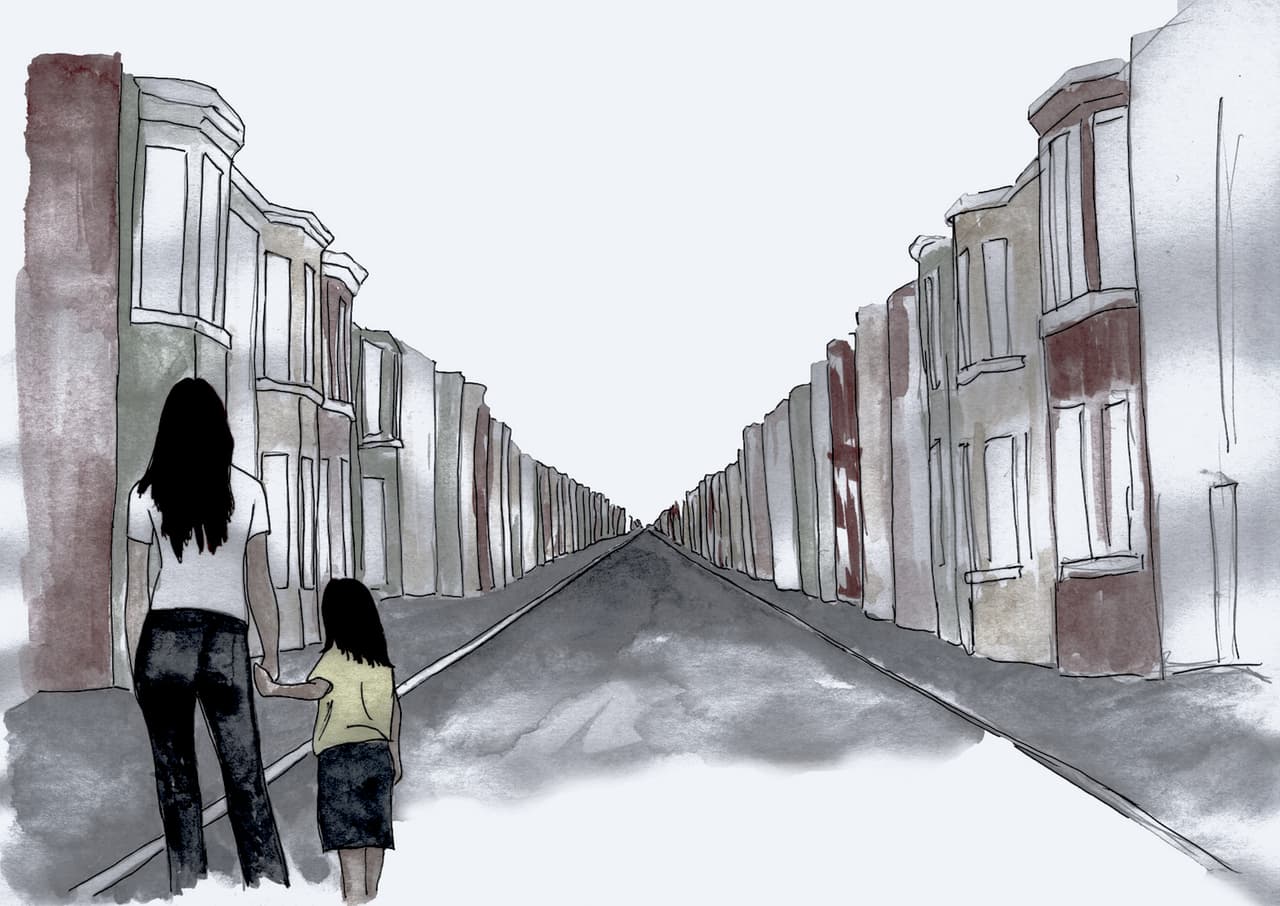
Revealed: Thousands of vulnerable women turned away as refuge funding is cut
In a small office in the Midlands the telephone rings every half hour or so. On the line are women desperate for help, trying to flee domestic violence. But there is no space in the refuge, there is almost never any space.
“Last week”, says a volunteer, “we had a lady call; she had four children, and the closest space we could find for her was the Orkney Islands.” They do not know if the woman took the 600 miles trip to safety; she did not call back.
An investigation by the Bureau of Investigative Journalism has found domestic violence refuges across England struggling under huge budget cuts. More than a thousand vulnerable women and children have been turned away from refuges in just six months.
Local authorities across England have cut their spending on domestic violence refuges by nearly a quarter (24%) since 2010, according to our new research.
Freedom of Information requests to local authorities across England revealed that over three quarters of councils have reduced the amount they spend on women’s refuges since 2010.
Meanwhile, the number of domestic violence cases registered by councils and by the police has risen dramatically over those years, with the number of incidents reported to police also increasing by over a third.
“Refuges provide a vital service and need to be protected,” said Maria Miller, a Conservative MP who chairs the Women and Equalities Select Committee. She told the Bureau that the Government should put in place a statutory requirement for local authorities to ensure there is a sufficient supply of refuge places in their area. She said that the government was committed to tackling domestic violence, but added: “Local authorities are under financial pressure along with the rest of public services but it is not right that refuges should suffer disproportionately.”
According to refuge managers from across the country, council spending cuts have led to refuges stripping back support provision, meaning they cannot take in some of the most vulnerable women. That fact, coupled with the huge increase in cases, means women are regularly being turned away.
Waiting lists for shelters have led to women sleeping rough while they wait, or being hospitalised after attacks from violent partners.
“Specialist domestic violence services are being hollowed out by council cuts forced by the government’s austerity programme. The government keep saying that they are investing tens of millions in to domestic violence services but this is not being felt on the ground,” said MP Jess Phillips, chair of the All Party Parliamentary Group on Domestic Violence and a former domestic violence worker. She added that the Bureau’s findings echoed what she had heard from around the country.
The Bureau has spent five months investigating the cuts: interviewing women fleeing violence, collecting data through Freedom of Information requests from local authorities and police forces, and surveying 40 refuge managers.
We found a system at breaking point, with one refuge manager warning: “women and children are going to die as a result.” Others described providing a “bare-bones service”, with another saying: “I feel incredibly concerned that in 2017 so many women and children are not able to access safe refuge provision.”
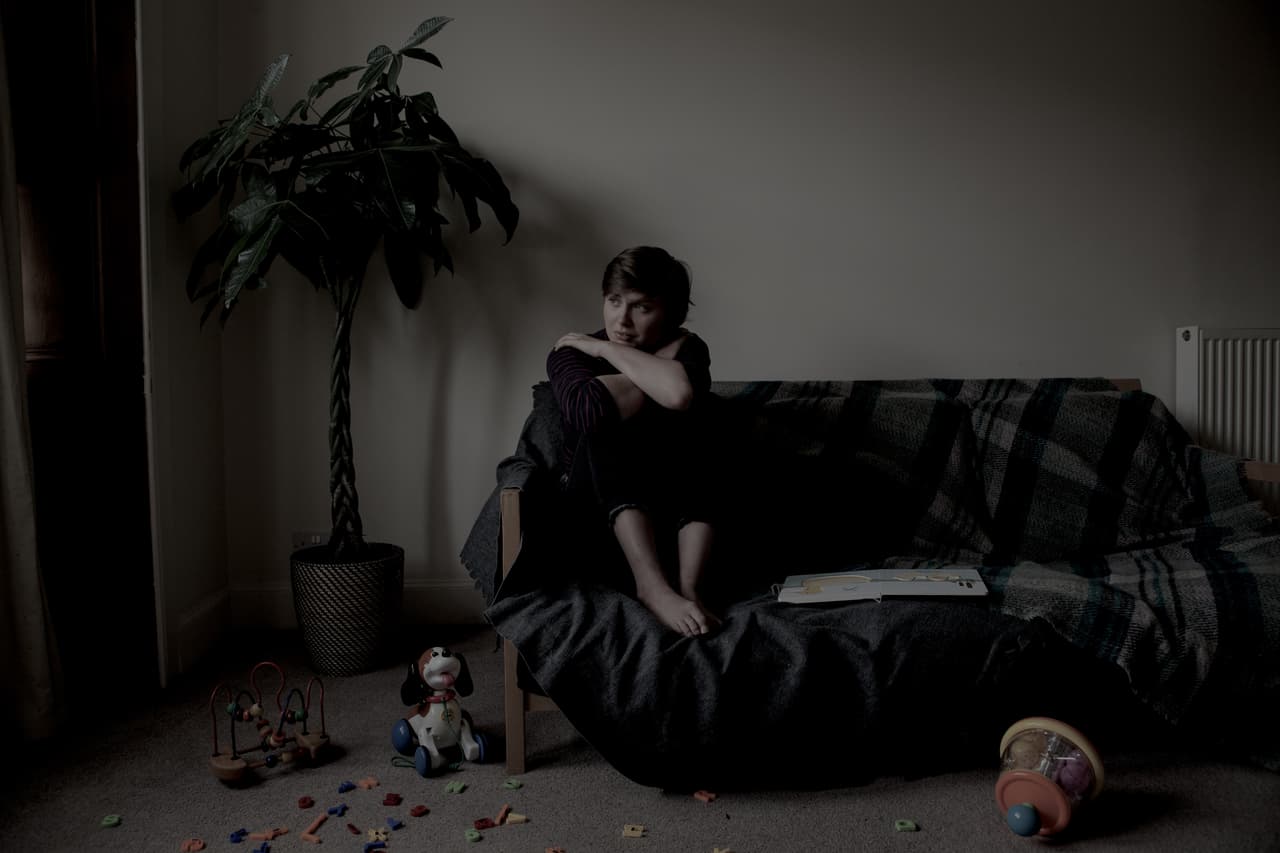
A picture of the cuts
The Bureau collected data from local authorities with refuge responsibilities across England, of which 84, more than half of those local authorities, were able to provide data for the years 2010/11 and 2016/17. We found council funding for refuges across England has dropped from £31.2m in 2010/11 to just £23.9m in 2016/17.
Refuges are funded in a variety of ways; however, the majority of them are supported by a combination of local authority funds which pay for support services and residents’ housing benefits which pay for the costs related to buildings.
While councils are increasing funding for domestic violence prevention work in the community, refuges are suffering, with some areas cutting their refuge funding by half or more.
Most of this funding pays for vital services such as support staff, mental health and substance abuse workers and child counselling.
It means some refuges have become little more than a roof over the head, with support workers available during the week, but with little help on-hand over the weekend.
If refuges cannot provide safe support for women they often refuse to accept them to the shelter.
The Bureau’s survey of 40 refuge managers across England revealed that 95% of refuges surveyed have turned women away in the last six months, either because they have physical impairments, complex mental health needs, they had too many children with them or simply because there were no beds available.
More than a thousand women have been turned away just from those 40 refuges since the start of the year. There are over 250 refuges in England.
“Women are at their absolute, most vulnerable state of being when they are waiting for a refuge space”, said Sarah Green, the co-director of Ending Violence Against Women Coalition. “The speed of these services being able to provide a lifeline is simply a matter of life or death”, she added.
On average two women are killed by their partner or ex-partner every week in England and Wales.
Dr Mary-Ann Stephenson, co-director of UK Women’s Budget Group, a thinktank, said: “Too often women’s services are the first to face cuts when local authority budgets are squeezed.” Stephenson noted government funding to local councils has dropped significantly in recent years and added: “These cuts have not been shared evenly – local authorities in the most deprived areas have lost far more than local authorities in richer areas.”
Katie Ghose, Chief Executive of the charity, Women’s Aid, said: “For survivors of domestic abuse, being able to flee to a refuge is often a matter of life or death. Yet for many women and their children trying to escape abusive homes, they are unable to access the safety of a refuge due to the chronic underfunding of these lifesaving services”.
Last year Theresa May and the Department for Communities and Local Government (DCLG) announced a £20m pot to fund domestic violence projects. The 76 successful projects were revealed in a high profile announcement in February which the Prime Minister said had the potential “to completely transform the way we think about and tackle domestic violence and abuse”.
However the Bureau’s analysis shows that 50 local authorities received nothing, an equivalent of 15% of the adult female population.
Shropshire, for example, did not receive any of the DCLG funding. The county council has cut its funding to refuges by 48% since 2010.
Even in areas that were funded, the amount per head of population varies wildly, from the equivalent of £3.52 per adult woman in Cumbria, to just 11p in Kent.
Refuge managers complain that decisions have been delayed and government funding has still not come through eight months after the winning bids were announced, leading one to put the entire staff on notice for fear of imminent closure.
“We’ve seen a delay in getting the money out, and local authorities sometimes acting as a block around getting the money to services,” said Marai Larasi of Imkaan, an organisation working with refuges which advocates for black and minority ethnic women.
She added the DCLG funding has been "critical in filling a gap for organisations that were at the very edge of their survival. Actually that money means everything”.
Women’s Aid’s Katie Ghose says that while the DCLG funding is welcome, refuges need a more sustainable model.
“We urge the Government to commit to the sustainable, long-term funding of a national network of refuges and ensure that the housing benefit refuges rely on will be protected. The Government must commit to save these lifesaving services so that all women and their children can safely escape from domestic abuse”, said Ghose.
“Domestic violence services need consistent funding; they simply cannot manage living hand to mouth year on year. Unless we get this right women and children will suffer”, said MP Jess Phillips.
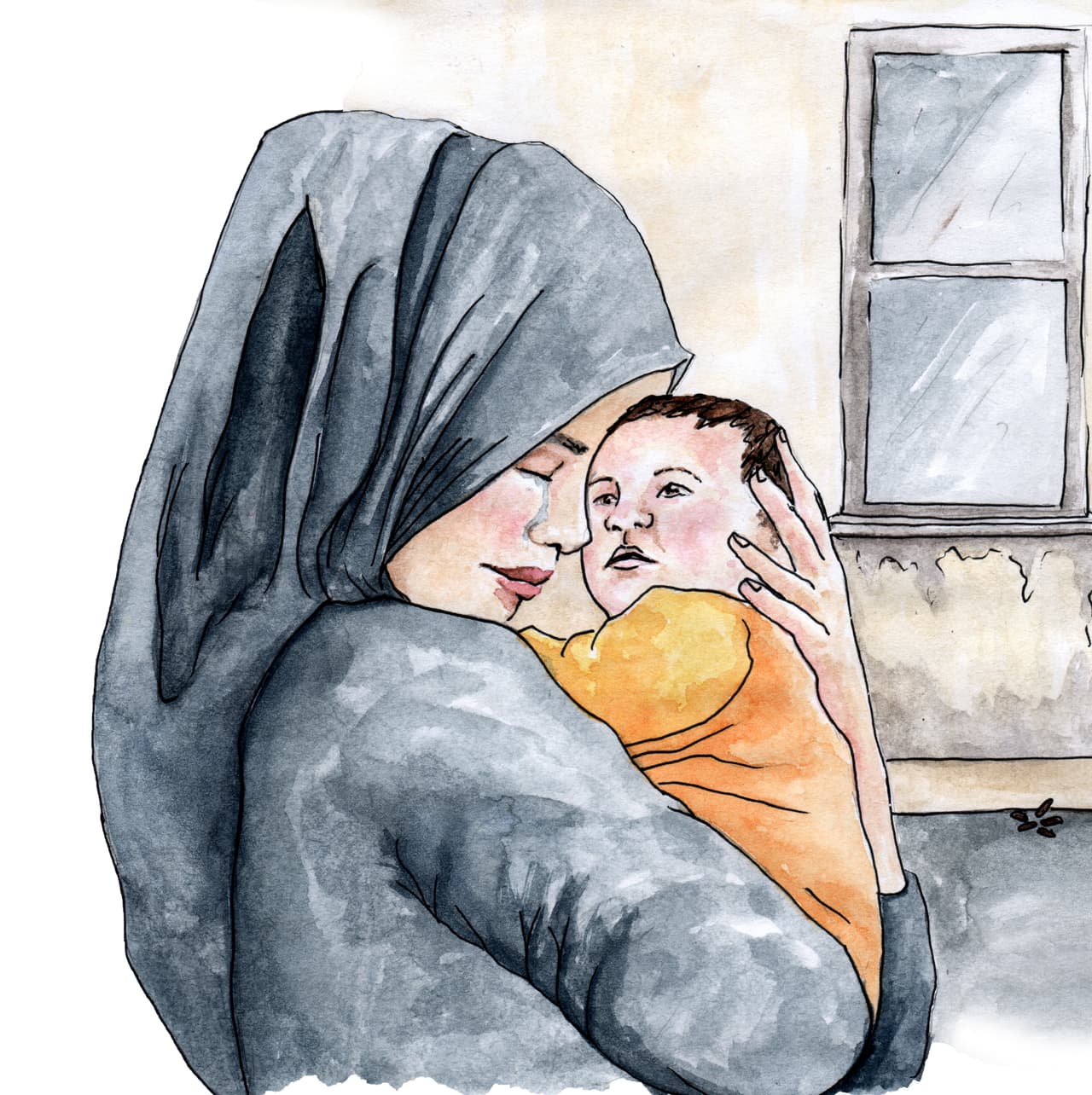
The hardest hit
With local authorities cutting their funds and central government providing temporary contracts, many refuge providers are having to cut back on the support they can offer.
Vital support services like child support workers, specialist provision for women from minority ethnic backgrounds and substance abuse workers have been reduced.
Those who are most vulnerable can be most affected by cuts, as service provision to those groups is more complex.
Marai Larasi of Imkaan, explained the importance of services tailored to black, Asian and minority ethnic (BAME) women. “Part of it is understanding different cultural nuances, issues around language but also autonomy. It really helps if you are being supported by people that understand the range of issues you are dealing with”, she said.
In East London, the Ashiana network runs three refuges with provision for BAME women, especially those fleeing forced marriage or “honour-based” violence. Housing services manager Pam Saleem told the Bureau: “Last year we lost funding for one of our refuges, the council decided they wanted to fund generic provision”, rather than specialist refuges.
For weeks the team feared one of their shelters would have to close. “It was a very stressful and uncertain time,” Saleem says.
Eventually Ashiana managed to secure funding from the Big Lottery Project.
“We are always full,” Saleem explains, and if there is no space there then it is hard to find another space with the specific provision needed to support women with language barriers.
Outside of London, such provision is even less common, “with most regions limited to a handful of spaces” and there are no refuges specifically for ethnic women “across the entirety of the South West,” according to a recent Women’s Aid report.
In Stoke, where the city council has cut funding for refuges by half since 2010, the only specialist refuge for Asian women closed in 2013.
We tell the stories that matter. To help defend quality reporting and spark change, please support the Bureau
Donate nowRefuges also report that there have been cuts to another key service, support workers for children.
The Bureau surveyed refuge managers covering some of the worst hit areas. Five of them told the Bureau cuts to children workers had been an issue.
In the West Midlands, one manager told the Bureau: “I’ve already lost my children’s worker. Staff are already applying for other jobs, staff that have been with us 12-14 years.”
Children that have witnessed domestic abuse often benefit from extra support. A spokesperson from the National Society for the Protection of Cruelty to Children (NSPCC) explained: “It’s important that young people recovering from any kind of abuse receive the correct support and care needed to move forward from the traumatic events they have experienced.”
As the same time funding for support services has been lost, there is also growing pressure for bed space.
Across the country the number of beds has largely remained stable, due in part to an exemption to the housing benefit cap which often pays women’s rent in the shelters. However, the number of cases of domestic violence has skyrocketed and the UK still falls way behind international guidelines on the number of beds needed.
While nationally numbers have remained relatively stable, in some areas, like Bradford, Derby and Sunderland, the number of beds has dropped.
Sunderland refuge manager Clare Phillipson spends her time agonising over which women she can turn away.
“Last weekend we ran out of bedrooms, then ran out of settees, now we’re at the stage we can’t take any more. I spent last weekend trying to work out which woman to turn away. You’re thinking is this woman going to die if we turn them away. It’s awful,” she adds.
The Bureau spoke to women who had waited weeks to get a place in a refuge. One woman had to call the police four times while she was waiting for a safe space. “I had nowhere to go, nowhere that was safe, absolutely nowhere, until I got into the house,” she said.
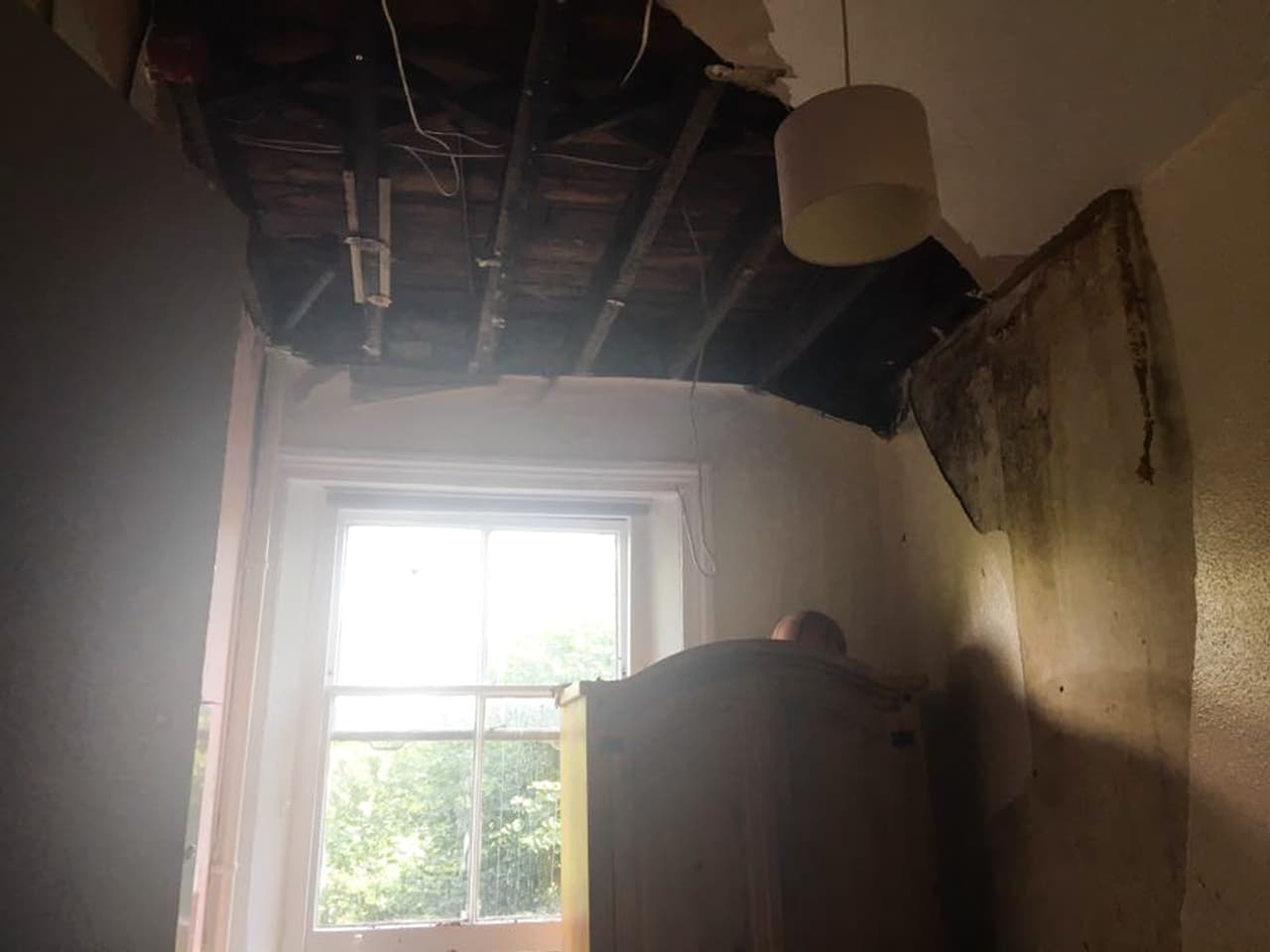
Living conditions in refuges
Even when women do manage to get a place in a refuge, some find conditions there are getting worse.
In Kensington and Chelsea, where the council’s spend on domestic violence has dropped by 45% since 2010, one of the main refuge providers has reduced its budget. In paperwork seen by the Bureau, the charity running the services, Hestia, agreed to drop its budgets by 14% to win the council’s tender. It has since been raised again. Meanwhile, the housing association in charge of the refuge building, Notting Hill Housing Trust, reduced its spend on maintenance and upkeep.
In late July, after weeks of the women in the refuge complaining about leaks, the refuge’s ceiling fell in, rendering the building uninhabitable.
The charity Hestia, acknowledged in a statement that supported housing services are under threat, saying: “All supported housing for all client groups have seen significant cuts to funding over the past decade, including refuges for women and children fleeing domestic abuse.” It added that it had taken prompt action when the roof fell in and it had offered "safe passage" to another refuge and on-going help.
Notting Hill Housing told the Bureau that the refuge was now open again. It explained: “Day-to-day management and support services at the refuge are run by charity Hestia, while NHH owns the building and provides maintenance based on call-outs by Hestia.”
The council said in a statement: “Women who have survived abuse need the best possible care and services to help them rebuild their lives, we know that and we understand that...The way in which the service is delivered is the responsibility of Hestia and the maintenance of the building is managed by the owners, Notting Hill Housing Trust.”
The Department for Communities and Local Government said, in a statement: “Domestic abuse is a devastating crime and we’re taking action to make sure that no victim is turned away from the support they need. We’ve secured £40 million of dedicated funding for these domestic abuse services over four years up to 2020, and so far allocated half of this to local authorities to support 76 projects across England, which will create more than 2,200 bed spaces and support to over 19,000 victims. We know there’s still more to do to tackle domestic abuse, which is why we’ll be introducing a landmark Domestic Violence and Abuse Bill to protect and support victims and bring perpetrators to justice.”
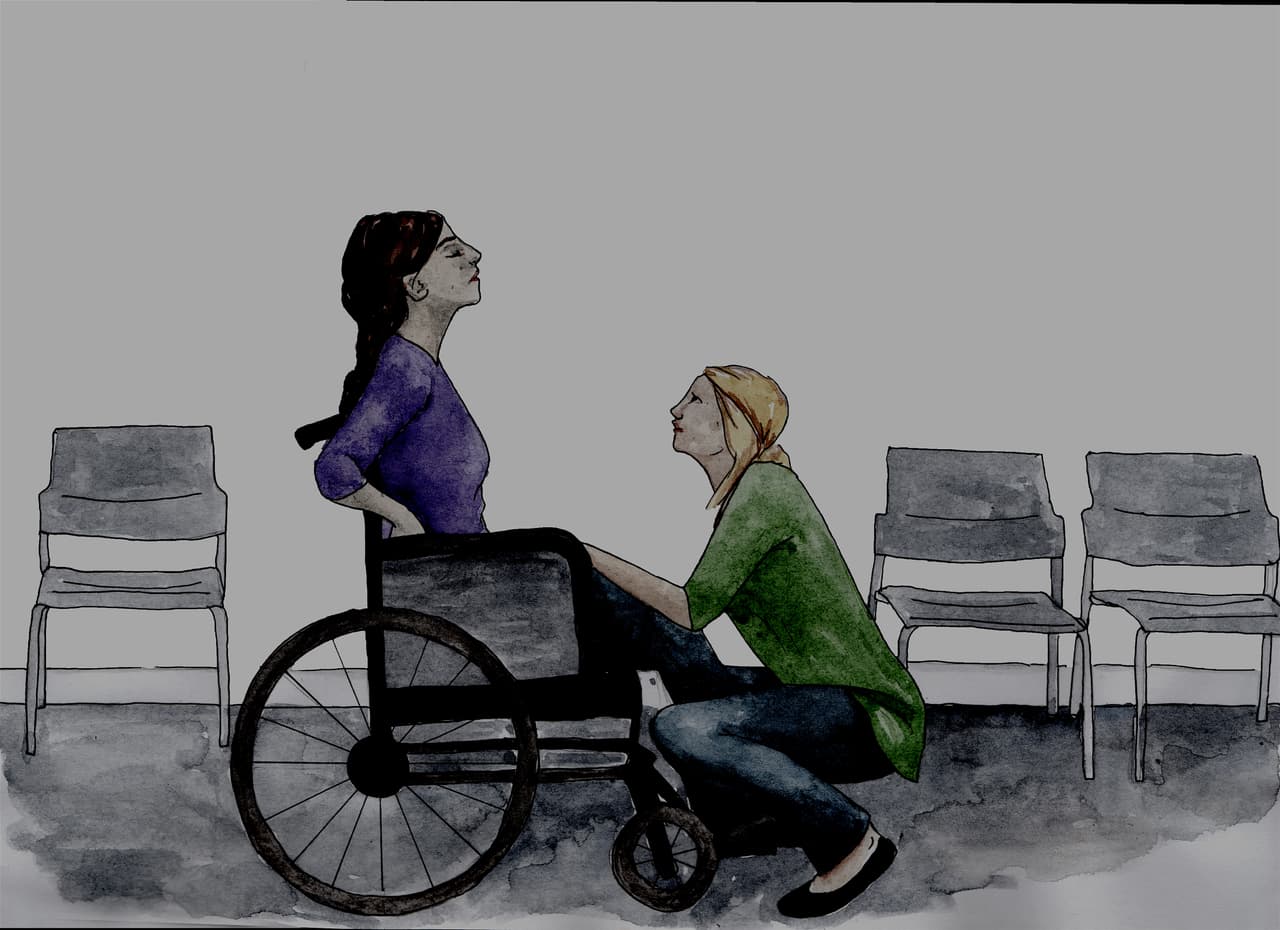
Turned away
Across the board it is the most vulnerable women being affected.
Because some women’s needs are too complex for refuges being run on skeleton staff and scant resources, it is difficult to find a place for those most at risk of harm.
The Bureau found refuges forced to turn women away because they did not have the funding for vital support workers, to work with women with mental health issues or substance abuse problems.
A report from Women’s Aid found that less than one in four refuges are able to offer in-house specialist mental health support, while only 10% of refuges had a specialist alcohol worker and just 10% had a specialist drug worker.
“You can support women with complex issues on a one to four or five basis, but most refuges now have one support worker to every eight or nine women”, said Monica Tuohy, the manager of Solace’s Islington refuge. The organisation provides London's only refuge specialising in support for women with complex needs.
It means that women like Tina, who fled an abusive relationship earlier this year, struggle to find a room.
Tina attempted suicide after being raped so violently that her womb was damaged. However, when she finally summoned the courage to leave her partner she found there was no space immediately available. She had a history of drug abuse and complex mental health needs.
The complexity of her case meant that many refuges running skeleton services were wary of taking her on. She eventually found a space in London where she has been since May.
“We've been abused, day in, day out, so we are all going to have complex issues. We had complex lives,” said Tina.
If you need to talk to someone about domestic violence contact Women's Aid/Refuge free helpline on 0808 2000 247. If you are in immediate danger, call 999.
Names of survivors of domestic violence have been changed for safety reasons.
All illustrations are by Ella Paton, a member of the Bureau Local network. Her work can be viewed here: https://www.etsy.com/uk/shop/V...



